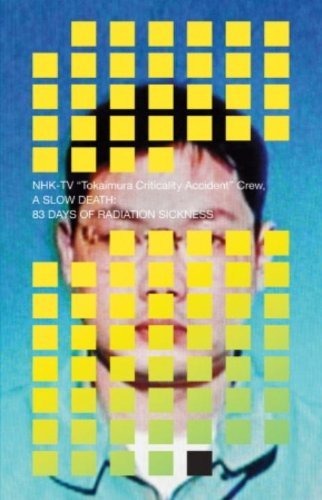
Veronica 🦦
Written on Jun 25, 2019
A+ | A short, provocative work documenting Hisashi Ouchi’s intense medical treatment. It doesn’t hold back with its descriptions and images of what happened to Ouchi’s body after the criticality accident in Tokaimura. There is nothing that can prepare you for this book because short as this book may be, it’s unrelenting in speaking the truth about what happened to this poor man.
I started this book right after I finished Midnight in Chernobyl. Since I’m a forgetful nerd, I forgot who/where I found out about this book, but I’m grateful to have found it.
This book less than 200 pages but it is stuffed full of information about what happened to Hisashi Ouchi after the criticality accident in Tokaimura. It is eye-opening and the translation was well done. The language was put into simple terms so that the everyday layperson can understand enough so people can sit through reading the entire book (if they can stomach reading all the horrific things that Ouchi had to face).
Its simplicity is one of the reasons why I adore this book. It doesn’t get into any flowery writing (although this could be due to translation). It’s straight forward and doesn’t stop.
Another reason why I adored this book was the fact it was very detailed, despite being a very short book. Every page is filled with information that would help you understand what had been going on during those 83 days from exposure to death.
We got to hear from the nurses as well as the doctors involved with Ouchi’s treatment. To be quite honest, as a nursing student, I couldn’t help but be happy that the nurses’ views were also included in this because we are a part of the medical team. Hell, nurses often know more about the patient than the doctors because we are the ones who are bedside. It was good to see that their words were included in this, as well as the doctors because we got to read about the Ouchi’s interactions with his family as well as his reactions to treatments.
I adored the fact that it emphasized that at a point, the medical team was treating Ouchi’s body, not Ouchi himself. Even I found myself questioning what would I do if I was in these nurses’ shoes? How would I react if I had a patient as critically ill as Ouchi?
This book is certainly not for the faint of heart. It does not shy away from descriptions of what had happened to Ouchi’s body. However, I do think that if you are a nursing or medical student, you should read this book. It’s provocative and gets you thinking. While Ouchi’s case is extreme, we will encounter critically ill patients who will cause us to question ourselves. Along with the question of medical ethics, this book is honestly a good book to have as a reference for case studies.
I 1000% recommend this book to anyone who is interested in reading about radiation sickness and just in general medical ethics. It’s short but detailed enough to increase your knowledge about the topic somewhat.
